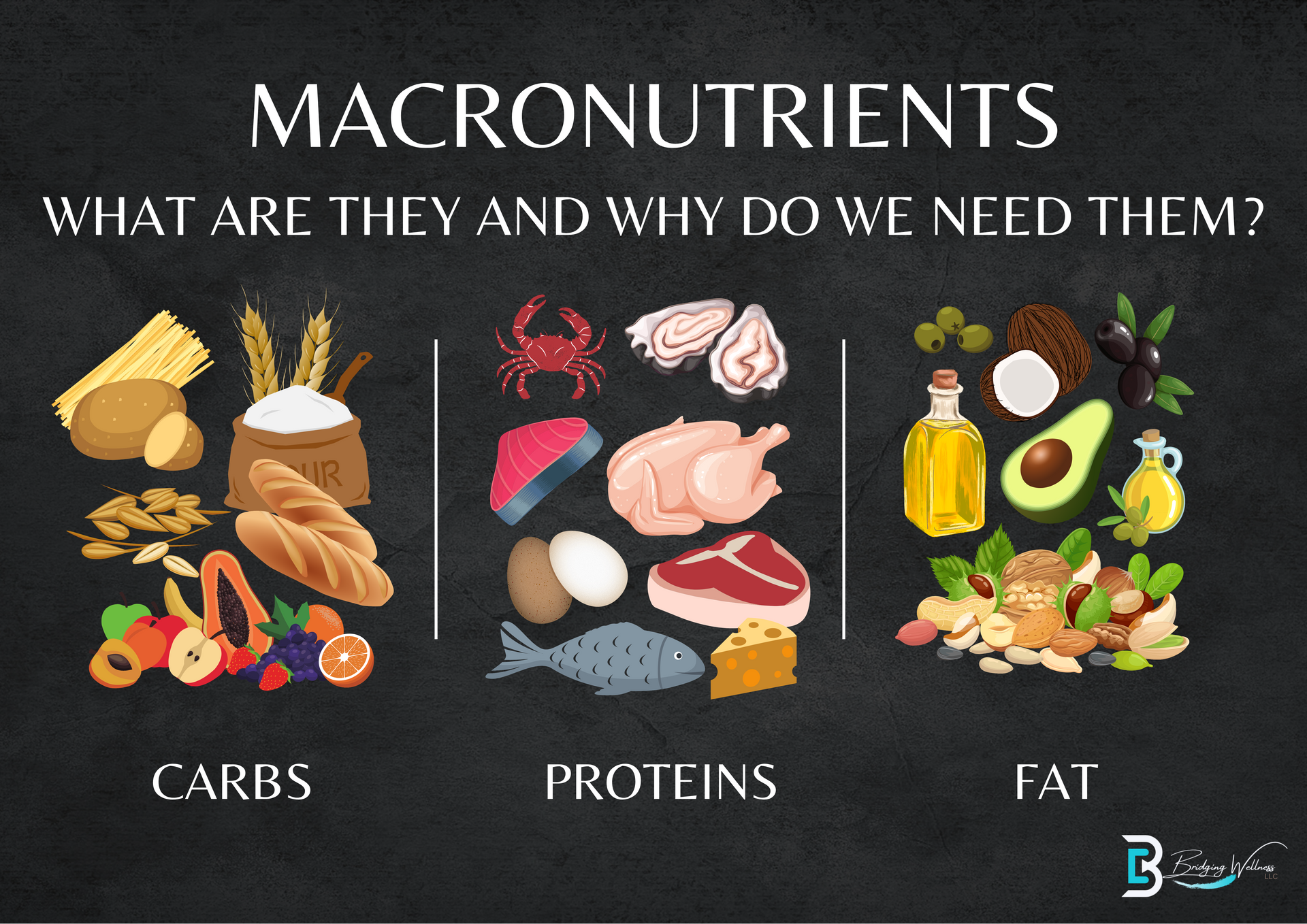Unveiling the Power of Macronutrients
A Comprehensive Guide to Fueling your Life

In the intricate web of nutrition, macronutrients play a pivotal role, serving as the fundamental building blocks that fuel our bodies. Understanding what -exactly - macronutrients are, where to find them, and how the body utilizes these essential components is the bridge to maintaining a healthy and balanced lifestyle; whether you lead a sedentary or an active life.
Defining Macronutrients:
Macronutrients consist of three primary categories: carbohydrates, proteins, and fats. Each of these macronutrients plays a distinct role in sustaining our bodily functions and supporting overall well-being.
1. Carbohydrates:
Despite their bad wrap, carbohydrates are the body's primary source of energy. Found in foods like grains, fruits, vegetables, and legumes, carbohydrates are broken down into glucose, which provides the fuel needed for various bodily functions. For those leading a sedentary life, a balanced intake of carbohydrates helps maintain steady energy levels, preventing fatigue and promoting overall vitality.
In an active lifestyle, carbohydrates become even more crucial, serving as a rapid energy source during exercise. Athletes and fitness enthusiasts often benefit from strategic carbohydrate consumption to optimize performance and support endurance.
2. Proteins:
Proteins are the building blocks of life, essential for the growth, repair, and maintenance of tissues and muscles. Sources of protein include meat, fish, dairy products, legumes, and plant-based alternatives. For those living a sedentary lifestyle, adequate protein intake helps preserve lean muscle mass and supports overall bodily functions.
In an active lifestyle, proteins become instrumental in muscle repair and growth. Athletes and individuals engaged in regular physical activity often require a higher protein intake to meet the demands of their training and facilitate optimal recovery.
3. Fats:
Fats are crucial for hormone production, brain function, and the absorption of fat-soluble vitamins. Sources of healthy fats include avocados, nuts, seeds, and olive oil. In a sedentary lifestyle, a balanced intake of fats is essential for maintaining overall health, supporting cognitive function, and promoting satiety.
For those leading an active lifestyle, fats contribute to sustained energy during prolonged exercise and assist in nutrient absorption. Incorporating healthy fats into the diet can enhance endurance and provide a valuable energy reserve for physical activities.
Importance of Knowing and Using Macronutrients:
Whether leading a sedentary or active life, understanding macronutrients empowers individuals to make informed dietary choices. Monitoring macronutrient intake ensures a balanced diet, contributing to overall health, energy levels, and well-being.
For a sedentary lifestyle, maintaining a balanced macronutrient ratio helps prevent energy imbalances, supporting optimal metabolism and preventing unnecessary weight gain. In an active lifestyle, strategic manipulation of macronutrients can enhance athletic performance, aid recovery, and promote muscle development.
In the journey towards a healthier life, embracing the significance of macronutrients is paramount. Tailoring your macronutrient intake to your lifestyle not only fuels your body but also sets the foundation for sustained well-being. Whether you're striving for balance in a sedentary routine or seeking peak performance in an active lifestyle, the key lies in understanding, appreciating, and harnessing the power of macronutrients.
Check out my FREE
macronutrient calculator to find out your custom macros!









